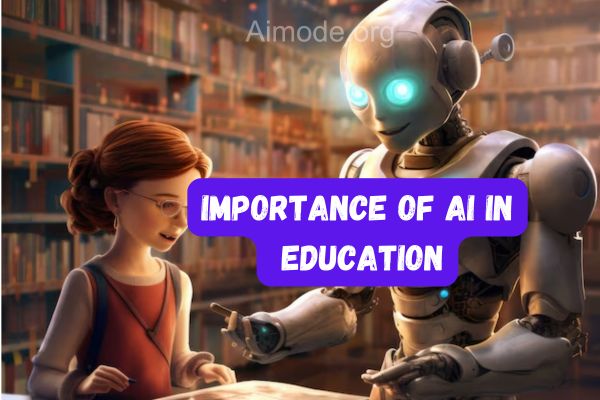Artificial Intelligence (AI) is revolutionizing education by tailoring learning experiences, simplifying administrative tasks, and improving accessibility. From personalized tutoring and automated grading to enhancing inclusivity, AI empowers educators and students alike. This integration of technology helps create an adaptable, data-driven learning environment that meets diverse student needs, making education more efficient, inclusive, and globally accessible. Lets us find importance of Artificial Intelligence in Education.
Also See: 20 Disadvantages of AI in Education: One Need To Know
Importance of Artificial Intelligence in Education
- Personalized Learning: AI-driven tools can adapt lessons to individual students’ learning styles, paces, and preferences. For example, AI algorithms analyze student performance data to adjust content difficulty or focus areas, providing a customized learning path. This personalization can increase engagement and help students understand concepts more deeply.
- Tutoring and Support: AI-powered tutoring systems provide extra help to students outside class hours. Virtual tutors can answer questions, offer explanations, and give feedback, allowing students to receive immediate support whenever they need it. This can be particularly beneficial for students who may struggle in certain subjects.
- Administrative Efficiency: AI can automate routine administrative tasks, such as grading exams, managing enrollment, and tracking attendance. This allows educators to focus more on teaching and mentoring students instead of spending time on paperwork.
- Enhanced Accessibility: AI tools make education more accessible by supporting students with disabilities. For instance, speech-to-text software helps those with hearing impairments, and text-to-speech aids visually impaired students. AI can also translate materials into various languages, helping non-native speakers better understand content.
Also See: 16 Potential Benefits Artificial Intelligence in Education
- Data-Driven Insights: By analyzing vast amounts of data, AI can help educators identify trends in student behavior, performance, and engagement. This enables schools to take proactive steps, such as offering additional resources to struggling students or adjusting teaching methods for more effective outcomes.
- Lifelong Learning and Skill Development: AI facilitates continuous learning through platforms that offer courses for adults and professionals. This supports upskilling and reskilling, allowing individuals to stay competitive in a rapidly changing job market.
- Global Reach and Inclusivity: AI-driven educational platforms provide resources to students worldwide, reducing the educational gap between urban and rural areas or low-resource communities. This helps make quality education accessible to more people, regardless of geographical or financial constraints.
Also See: Future of AI in Education: Changing the Whole World
AI’s role in education fosters a flexible, inclusive, and personalized learning experience. As technology advances, it promises to bridge educational gaps, empower educators, and provide students worldwide with the tools to succeed in a rapidly evolving digital age.
